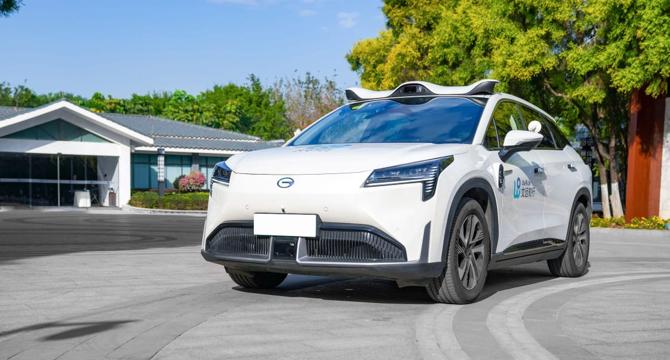Insider
3d
143

Image Credit: Insider
China has a crucial edge in the robotaxi race, WeRide executive says
- Chinese robotaxi firm, WeRide, has a crucial edge over US companies, due to China's booming EV industry, which is providing companies like WeRide access to vast amounts of cheap tech. Self-driving companies in China can quickly, and cheaply, build custom autonomous vehicles in a variety of formats, Li said. WeRide also has the cost advantage, working closely with all the local carmakers to develop the best autonomous vehicles and bring them quickly onto the market. Many Chinese EVs are increasingly packed full of smart technology from smartphone makers, including higher-end autonomous driving features, which is giving Chinese firms an edge over rivals. WeRide operates its autonomous vehicles in seven countries globally.
- WeRide is one of the few Chinese AV companies to expand beyond its home market, operating a range of autonomous vehicles that includes robotaxis, robovans and robo-road sweepers across seven countries. WeRide recently launched two autonomous pilots in Switzerland, and has partnered with Uber to offer its robotaxis on the ride-hailing app in Abu Dhabi.
- China witnessed a dramatic boom in its EV market in recent years, driven in part by enormous government support for the EV industry. Local automakers like BYD have grown rapidly, undercutting foreign rivals by offering electric vehicles for prices as low as $10,000.
- China's autonomous vehicle scene has also grown quickly in recent years, with Pony.AI announcing last month that it would expand its robotaxi fleet to 1,000 vehicles this year. Meanwhile, Baidu's Apollo Go ride-hailing service has completed more than 8 million rides since it launched.
- The US robotaxi industry has hit a few speedbumps in recent years. Google-backed Waymo has expanded rapidly and is now serving over 150,000 rides a week across several US cities, but General Motors pulled the plug on rival Cruise last month despite spending $10 billion on the robotaxi company since 2016.
- The outgoing Biden administration confirmed new rules effectively banning Chinese vehicle software and hardware from the US market. The measures also bar Chinese companies from testing robotaxis on US roads.
- WeRide has been testing autonomous vehicles in California since 2017, but does not have permission to carry paying members of the general public.
- WeRide's presence in the US is focused on R&D and testing and the company has no plans to offer public passenger services in the country.
- Li said they were still assessing the potential impact of the new rules and could not comment on measures they had not yet seen but added the influence of Elon Musk over the new administration was a cause for partial optimism.
- The billionaire has close links with China, which is one of Tesla most-important markets in the world.
Read Full Article
8 Likes
For uninterrupted reading, download the app